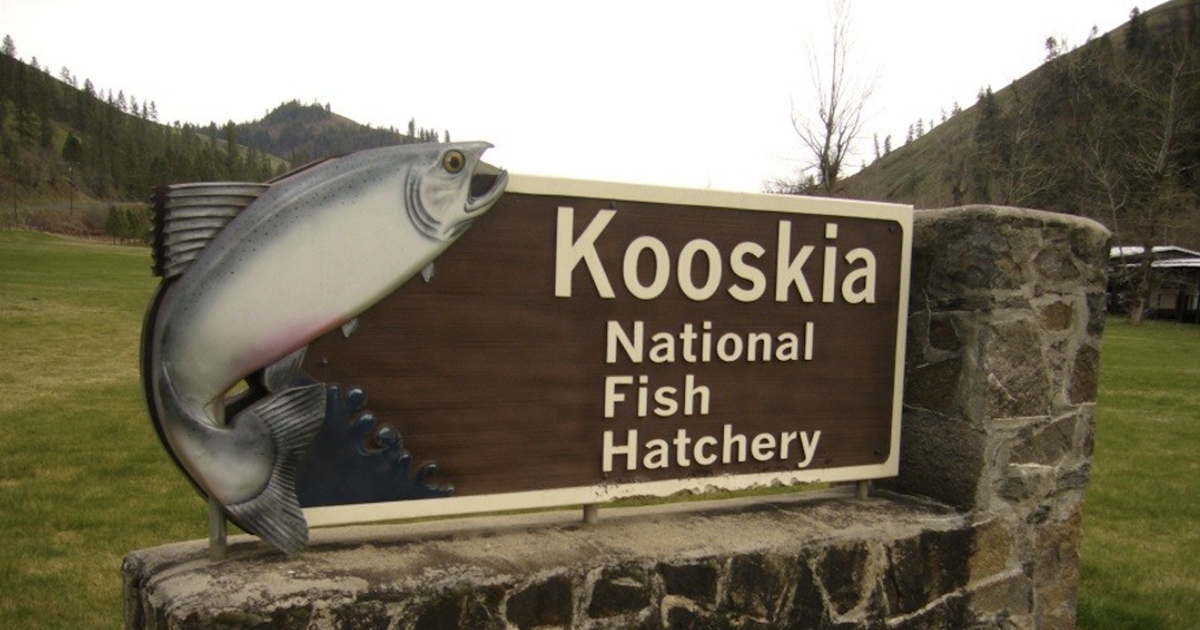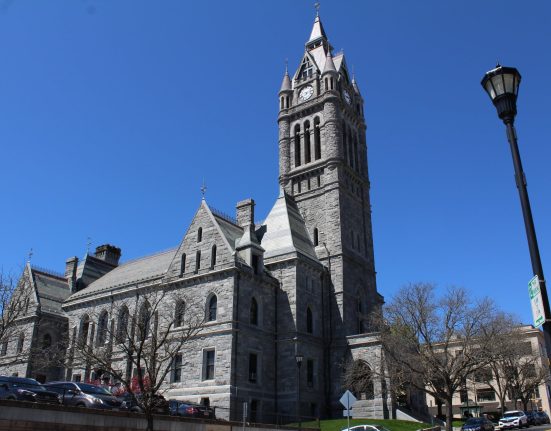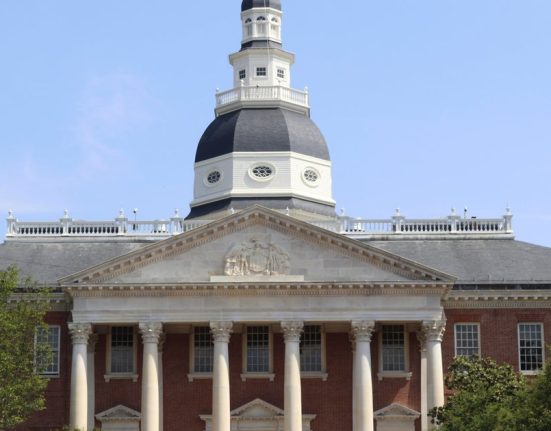WASHINGTON – Nine months into the fiscal year, the Nez Perce Tribe is still waiting for money Congress approved months ago for contracts to operate fish hatcheries vital to maintaining Northwest salmon runs – and the tribe’s chairman is worried those funds may never arrive.
In a letter to the top Republican and Democrat on the House subcommittee responsible for funding the Interior Department and other agencies, Chairman Shannon Wheeler told the lawmakers his tribe is “deeply concerned” that dollars Congress appropriated in a short-term spending bill passed in March “may not be reaching the recipients for which the funds were authorized.” The Spokesman-Review obtained the letter after it was sent July 2 to Rep. Mike Simpson, R-Idaho, and Rep. Chellie Pingree, D-Maine.
The Nez Perce Tribe operates fish hatcheries that receive funding from the U.S. Fish and Wildlife Service, part of the Interior Department, and from the National Marine Fisheries Service, part of the Commerce Department. Wheeler wrote that employees at those agencies had informed their counterparts at the tribe that funding for the current fiscal year, which ends Sept. 30, would be cut by as much as one third.
The letter comes after President Donald Trump announced on June 12 he would withdraw from a Biden-era agreement with the Nez Perce and three other Northwest tribes, along with conservation groups and the states of Washington and Oregon, that would have provided more than $1 billion in federal funds aimed at restoring salmon and steelhead populations in the Columbia Basin. Earlier in the year, the Trump administration blocked $500 million in funding Congress had already approved for a fish passage project at Howard Hanson Dam on the Green River, east of Tacoma.
The tribe has routinely absorbed up-front costs for operating hatcheries and other federally funded programs when funds are late to arrive, Wheeler said, but it can’t plan ahead for budget cuts the federal government makes retroactively. That leaves the tribe on the hook for costs it can’t be sure to recoup.
“If the United States does not take full responsibility for its funding obligations, it will essentially leave the Tribe in a severe fiscal deficit,” Wheeler wrote. “The Tribe calls your attention to this emerging potentiality and asks you to step in to avert a financial crisis.”
Wheeler said he was notified that funding from the Fish and Wildlife Service for the Kooskia National Fish Hatchery, a federal facility the tribe has operated since 2007, would be reduced by 33% – with just a quarter of the fiscal year remaining. Separately, he said, the National Marine Fisheries Service had told the tribe it was making a 16% cut to funding under the Mitchell Act, a 1938 law that supports roughly one third of hatcheries in the Columbia Basin.
“The Tribe operates Kooskia National Fish Hatchery with a staff of four employees, and we will be unable to sustain fish production at the facility with a third of the budget being cut,” Wheeler wrote.
Neither the U.S. Fish and Wildlife Service nor the National Marine Fisheries Service responded to questions on Monday.
In addition to the cuts to hatchery funding, Wheeler said officials at the Bureau of Indian Affairs had indicated to the tribe that it should expect similar cuts in the current fiscal year to funding from the agency, which funds health care, law enforcement and other important services. The chairman said that while the Bureau of Indian Affairs had not yet indicated how big that cut may be, the Nez Perce received more than $8.8 million from the agency in 2024, and any cut to that funding so late in the fiscal year would be “devastating” for the tribe.
The Bureau of Indian Affairs did not respond to questions on Monday.
In an interview, Wheeler said the funding uncertainty is especially problematic because the tribe’s fisheries department is in the middle of breed stock collection. He emphasized that the federal government is obligated to support the hatcheries to compensate for the federal hydropower system’s impact on salmon and steelhead populations.
“The fish are here now, so we need to know the amount of fish that we can actually care for,” the chairman said. “It doesn’t make sense to us to take away dollars that are helping support the activities that happen in the Columbia River and Snake River systems when it comes to mitigation for the losses of natural species that we have.”
Becky Johnson, director of the tribe’s hatchery program, said in an interview that “The worst-case scenario would be that we collect the fish and then find out that we have no money.”
“And then so what do you do? Do you kill a million eggs and lay off several people? That’s basically the decision you have to make.”
Johnson said she and her colleagues in the tribe’s fisheries department were set to talk later on Monday with staff from Simpson’s office. A spokeswoman for Simpson, Lexi Hamel, confirmed that the Idaho Republican is “aware of the issue and having conversations” about it.
To make matters worse for Northwest hatcheries, Johnson said, Trump’s budget request for the next fiscal year that begins in October includes a roughly 25% cut in Mitchell Act funding. Congress traditionally takes a president’s budget request as just a suggestion, but congressional Republicans have generally supported Trump’s sweeping effort to cut federal spending on programs he doesn’t see as priorities for his administration.







